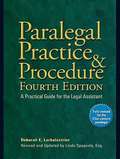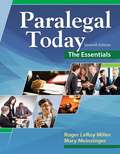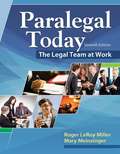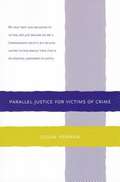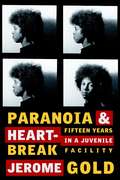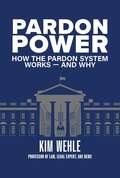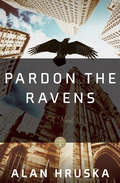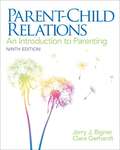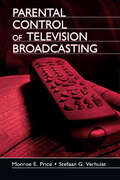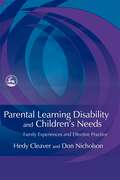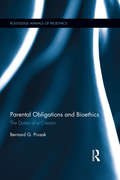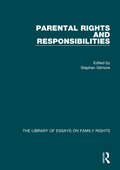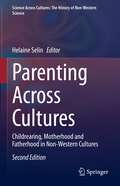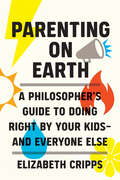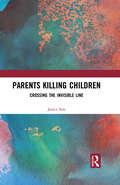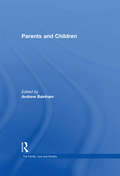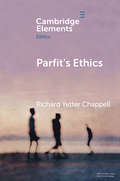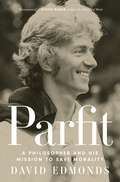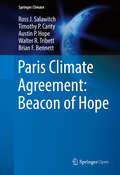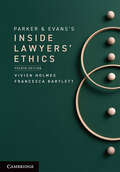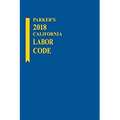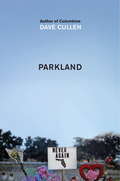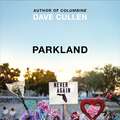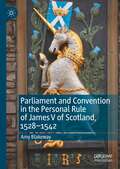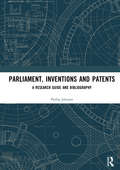- Table View
- List View
Paralegal Practice & Procedure (Fourth Edition)
by Deborah LarbalestrierThe completely revised and updated fourth edition of the most trusted paralegal desk references on the market. Now fully revised and expanded: the bestselling desk reference for paralegals at any level. Each chapter has been completely updated to include the latest step-by-step instructions for every aspect of a paralegal's job, with new procedures, checklists, and resources throughout. Topics covered include:* Paralegal ethics* Training programs* Court systems and court procedures* Federal court practice and procedures* Pretrial practice and procedure* Legal research tools* Electronic trial preparation proceduresIn addition to the general resources that will be of value to every paralegal, this guide also includes detailed information on practice and procedures for working in specialty law firms.
Paralegal Today: The Essentials, 7th Edition
by Roger Leroy Miller Mary MeinzingerDesigned for anyone considering a career as a paralegal, the 7th edition of PARALEGAL TODAY: THE ESSENTIALS provides you with a comprehensive introduction to the legal system through real-world examples, practical applications, ethical dilemmas, and hands-on assignments. With thorough coverage of the basic, key areas of paralegal studies, this text ensures that you will develop a comprehensive understanding of the laws in our society, the importance of ethical and professional responsibility, and the skills needed to thrive in the legal environment. The text includes increased coverage of technology in the workplace, including critical topics such as confidentiality issues, e-mail policies, technology in the courtroom, and the use of social media in criminal and civil litigation.
Paralegal Today: The Legal Team at Work
by Roger Miller Mary MeinzingerSucceed in your course and your career as a paralegal with PARALEGAL TODAY: THE LEGAL TEAM AT WORK. This updated Seventh Edition shows you how current technology and social media tools are used in practice, while helping you develop an understanding of the laws in our society, the importance of ethical and professional responsibility, and the skills needed to thrive in today's legal landscape. Real-world examples, practical applications, ethical dilemmas, hands-on assignments, and an entire chapter on paralegal careers (with salary information) prepare you to meet the challenges of today's paralegal working landscape.
Parallel Justice for Victims of Crime
by Susan HermanFocuses on justice served for both the offender and the crime. Most are the time where all our attention is directed towards the justice for the victim to the offendor; here it's our obligation to bring the offender to the bar to be questioned, determine whether as law was broken, and if so sanction him/her with the appropriate punishment in accordance of the law broken. What happens after all this is done? Parallel justice is rooted in Justice to the victims, true justice involves seeking to heal the wounds of those who have suffered and those that have violated the law.
Paranoia & Heartbreak: Fifteen Years in a Juvenile Facility
by Jerome GoldFor fifteen years, Jerome Gold worked as a rehabilitation counselor in a prison for juveniles in Washington state. Throughout his time there, he kept a journal of his experiences with youths who had been incarcerated for murder, kidnap, assault, rape and other sex offenses, auto theft, burglary, and selling drugs. What started as a journal designed to relieve stress turned into the evocation of one man's nuanced perspective on a unique group of young people. Paranoia & Heartbreak tells Gold's personal story of coming to terms with people who have crossed over to the other side of their own humanity. Writing from ample experience and with unflinching compassion, Gold brings the reader to see these "deviants"--and through them, in some slanted way, our whole society, with an unexpected intensity.
Pardon Power: How the pardon system works—and why
by Kim WehleThe president's power to pardon federal crimes is immense, with roots in ancient notions of mercy and amnesty. However, this power, seemingly boundless under the Constitution, lacks clear constraints. Recent events have raised alarms about potential for presidential abuse of pardons, highlighting the need for accountability within the pardon system to uphold the foundational premise that no one is above the law. In Pardon Power: How the Pardon System Works--And Why, KIM WEHLE EXPLORES THE HISTORICAL CONTEXT AND CONTEMPORARY CHALLENGES SURROUNDING THE PRESIDENTIAL PARDON. Wehle debunks the widespread myth that the president's pardon power is absolute and unfettered, and concludes that a self-pardon for crimes in the Oval Office would be unconstitutional. Urgent recognition of the necessity for guardrails around the pardon power is essential to safeguard American democracy. Kim Wehle is a law professor and legal contributor for ABC News. She writes about civics and the rule of law. Her books include How to Read the Constitution--and Why, What You Need to Know About Voting--and Why, and How to Think Like a Lawyer--and Why.
Pardon the Ravens: A Novel
by Alan Hruska"As good as the best offerings of Turow, Grisham, and other legal-thriller hitmakers"--Booklist, on Wrong Man RunningFrom the author of Wrong Man Running and the writer and director of the films Reunion and The Warrior Class, this fast-paced legal thriller set in the Mad Men era grabs you and doesn't let go. Gifted young New York lawyer Alec Brno gets the career boost of a lifetime: the opportunity to try a huge fraud case making international headlines. But he risks it all when he falls for an alluring young woman whose estranged husband is a sadistic Mafia don--and the criminal mastermind behind Alec's case. Alan Hruska is a native of New York and a graduate of Yale University and Yale Law School. He is a former trial lawyer who has represented Henry Kissinger, William Paley, Sam Walton, Katherine Graham, and many others. As cofounder of Soho Press, he currently serves as chairman of the board. He has also written and directed a number of movies, including Nola, The Warrior Class, and Reunion, and several plays. Pardon the Ravens is his third novel.
Parent-Child Relations: An Introduction to Parenting
by Clara Gerhardt Jerry BignerNow in the Ninth Edition, Jerry Bigner's Parent-Child Relations, the classic resource for child development professionals and parents themselves, has undergone a thorough revision anchored by the vision of the late Dr. Bigner and executed by new co-author, Clara Gerhardt. Maintaining its fundamental structure and unique approach, the text uses family systems and systemic family development theory as a framework to explore how parent-child relations change in tandem with developmental changes occurring with children, adults, and the wider family system. Thoughtful updates and revisions were done to increase the effectiveness and currency of the text. The text continues to provide strong emphasis on various theoretical and practical models pertaining to parenting. For decades now, this classic text has prepared countless teachers and practitioners by its proven and practical approach, utilizing family systems and systemic family development theory to explore how parent-child relations change in tandem with developmental changes occurring with children, adults, and the wider family system. The most comprehensive and current resource available to students as they prepare for working with parents and families, and for their roles as parents themselves, this best-selling resource carries on the essential message of its originator, Dr. Jerry Bigner, and will continue to nurture future family scholars and practitioners for years to come.
Parental Control of Television Broadcasting (Routledge Communication Series)
by Monroe E. Price Stefaan VerhulstThis project, originally developed for the European Community, examines parental roles in controlling television programs watched by children in Europe. The structure of the study includes: *an analysis of the technical devices available to assist in parental control of television broadcasting services, including descriptions of devices, their cost, availability, and the infrastructure needed to introduce them; *a corresponding analysis of potential ratings or labeling systems to work in conjunction with or in the place of technical devices, enabling a comparative analysis of rating systems used in film, video, and online services; and *an overview and assessment of the educational and awareness measures in the field of protection of minors and harmful content, providing the data for the review of available considerations in this field of viewer literacy. In addition to these main strands of analysis, the study provides for background information and analysis in the following areas: *an overview of the main media theories focusing on the effect and impact of specific types of content on children and their behavior; *an assessment of the economic impact and social efficacy of different protective measures; and *a comparison of the regulatory contexts and rating systems for film, video, television, and online services concerning the protection of minors from harmful content. This volume is intended for scholars and students in comparative media studies, media policy, and regulation.
Parental Learning Disability and Children's Needs: Family Experiences and Effective Practice
by Hedy Cleaver Don NicholsonParental Learning Disability and Children's Needs explores how to effectively assess children in families where one or more parent has a learning disability. These children often have unmet needs because their parents are more likely to be coping with mental and physical illness, domestic violence or substance abuse. The book examines current social care practice in this area, whether it is working, and the impact it has on families. The authors describe how, although some parents with a learning disability face a significant risk of losing their children, most continue to look after them and, while support provided by social services and other agencies, can be significant it is rarely sustained and the health and welfare of many children suffers as a result. Case studies and interviews from original research support the authors' recommendations for policy and practice to combat these problems. This book will prove to be an invaluable source of information for all social workers and other professionals working with someone who is both a parent and has a learning disability.
Parental Obligations and Bioethics: The Duties of a Creator (Routledge Annals of Bioethics #14)
by Bernard G. PrusakThis book examines the question of what parental obligations procreators incur by bringing children into being. Prusak argues that parents, as procreators, have obligations regarding future children that constrain the liberty of would-be parents to do as they wish. Moreover, these obligations go beyond simply respecting a child’s rights. He addresses in turn the ethics of adoption, child support, gamete donation, surrogacy, prenatal genetic enhancement, and public responsibility for children.
Parental Rights and Responsibilities (The\library Of Essays On Family Rights Ser.)
by Stephen GilmoreThis volume represents key scholarship on the issue of parental rights and responsibilities, selected from a dense forest of literature. The collection offers an overview of the subject and covers topics such as: underlying rationales of who or what is a parent; legal concepts ofparent and their linkage; the legal parent - accommodating complexity; the nature and scope of parental rights; shared parental responsibility; and parental rights and the state.
Parenting Across Cultures: Childrearing, Motherhood and Fatherhood in Non-Western Cultures (Science Across Cultures: The History of Non-Western Science #12)
by Helaine SelinThis second edition of Helaine Selin’s successful Parenting Across Cultures comes at a time where interest in parenting has increased across the world as a result of the COVID pandemic, as parents and children were put into different and often challenging conditions. This new edition, like the first, contains chapters from countries in Asia, Africa, and South America as well as from indigenous cultures of several Western countries. The chapters were revised to include new research in the post-pandemic world. They show that there is a strong connection between culture and parenting: there are differences in affection and distance, harshness and repression, and acceptance and criticism. Some parents insist on obedience; others are concerned with individual development. This clearly differs from parent to parent, but there is just as clearly a connection to culture, which these chapters explore. In addition to the chapters on individual countries, the second edition includes a section on the pandemic, as well as new research on parenting and technology, gender, religion, adoption, step parenting, divorce, single parents, racism, gay parents, disabilities, autism, eating habits, transgender, attachment, migration, bullying, and refugee resettlement.
Parenting on Earth: A Philosopher's Guide to Doing Right by Your Kids and Everyone Else
by Elizabeth CrippsBeing parents and being human: building hope for our children in a fragile world.Environmental catastrophes, pandemics, antibiotic resistance, institutionalized injustice, and war: in a world so out of balance, what does it take—or even mean—to be a good parent? This book is one woman&’s search for an answer, as a moral philosopher, activist, and mother.Drawing on the insights of philosophy and the experience of parent activists, Elizabeth Cripps calls for parents to think radically about exactly what we owe our children—and everyone else. She shows how our children&’s needs are inseparable from the fate of the earth and the fortunes of others and how much is at stake in parenting today. And she asks the hardest question: should we have kids at all?Timely and thoughtful, Parenting on Earth extends a challenge to anyone raising children in a troubled world—and with it, a vision of hope for our children&’s future. Cripps envisions a world where kids can prosper and grow—a just world, with thriving social systems and ecosystems, where future generations can flourish and all children can lead a decent life. She explains, with bracing clarity, why those raising kids today should be a force for change and bring up their children to do the same. Hard as this can be, in the face of political gridlock, ecoanxiety, and general daily grind, the tools of philosophy and psychology can help us find a way.
Parents Killing Children: Crossing the Invisible Line
by Janice SimParents Killing Children: Crossing the Invisible Line explores hidden forms of violence within the family. This socio-legal study addresses the interactions between the family and the state, focusing on six parent perpetrators and the ways in which child endangerment is concealed within society. Drawing on symbolic interactionism, mythology and a modelling of case study data, this book puts forward a unique conceptualisation of representation and risk, both on familial and state levels. The failure of the state to intervene and neutralise volatile perpetrators also sheds light on the socio-legal status of children – society’s most vulnerable – and the book concludes by discussing means by which the underlying social conditions and maladies symptomatic of child abuse and killing should be addressed.
Parents and Children (The Family, Law and Society)
by Andrew BainhamThis volume brings together some of the best journal articles of the last twenty years which deal with various aspects of the relationship between parents and children. Adopting an inter-disciplinary and comparative approach, the book reproduces articles from a variety of journals in law and the social sciences. The book is divided into eight parts dealing, respectively, with becoming a parent; the status and obligations of parenthood; issues of upbringing; adolescence; child support; parental separation, divorce and children; child abuse and state intervention; social parenthood and adoption. The volume includes a substantial introduction by the editor.
Parfit's Ethics (Elements in Ethics)
by Richard Yetter ChappellDerek Parfit (1942–2017) was one of the most important and influential moral philosophers of the late 20th and early 21st centuries. This Element offers a critical introduction to his wide-ranging ethical thought, focusing especially on his two most significant works, Reasons and Persons (1984) and On What Matters (2011), and their contribution to the consequentialist moral tradition. Topics covered include: rationality and objectivity, distributive justice, self-defeating moral theories, Parfit's Triple Theory (according to which consequentialism, contractualism, and Kantian ethics ultimately converge), personal identity, and population ethics.
Parfit: A Philosopher and His Mission to Save Morality
by David EdmondsFrom the bestselling coauthor of Wittgenstein&’s Poker, an entertaining and illuminating biography of a brilliant philosopher who tried to rescue morality from nihilismDerek Parfit (1942–2017) is the most famous philosopher most people have never heard of. Widely regarded as one of the greatest moral thinkers of the past hundred years, Parfit was anything but a public intellectual. Yet his ideas have shaped the way philosophers think about things that affect us all: equality, altruism, what we owe to future generations, and even what it means to be a person. In Parfit, David Edmonds presents the first biography of an intriguing, obsessive, and eccentric genius.Believing that we should be less concerned with ourselves and more with the common good, Parfit dedicated himself to the pursuit of philosophical progress to an extraordinary degree. He always wore gray trousers and a white shirt so as not to lose precious time picking out clothes, he varied his diet as little as possible, and he had only one serious non-philosophical interest: taking photos of Oxford, Venice, and St. Petersburg. In the latter half of his life, he single-mindedly devoted himself to a desperate attempt to rescue secular morality—morality without God—by arguing that it has an objective, rational basis. For Parfit, the stakes could scarcely have been higher. If he couldn&’t demonstrate that there are objective facts about right and wrong, he believed, his life was futile and all our lives were meaningless.Connecting Parfit&’s work and life and offering a clear introduction to his profound and challenging ideas, Parfit is a powerful portrait of an extraordinary thinker who continues to have a remarkable influence on the world of ideas.
Paris Climate Agreement: Beacon of Hope
by Ross J. Salawitch Timothy P. Canty Austin P. Hope Walter R. Tribett Brian F. BennettThis book is open access under a CC BY 4. 0 license. This volume presents an Empirical Model of Global Climate developed by the authors and uses that model to show that global warming will likely remain below 2#65533;C, relative to preindustrial, throughout this century provided: a) both the unconditional and conditional Paris INDC commitments are followed; b) the emission reductions needed to achieve the Paris INDCs are carried forward to 2060 and beyond. The first section of the book provides a short overview of Earth's climate system, describing and contrasting climatic changes throughout the planet's history and anthropogenic changes post-Industrial Revolution. The second section describes the climate model developed by the authors (Canty et al. , Atmospheric Chemistry and Physics, 2013) and contrasts the model with climate models used in the Intergovernmental Panel on Climate Change (IPCC) 2013 Report. Chapter 3 examines both the unconditional (i. e. , firm commitments) and conditional Paris INDCs (commitments contingent on financial flow and/or technology transfer) through the lens of their climate model and concludes that if all of the Paris INDCs are followed, then they are indeed a beacon of hope for Earth's climate. The fourth part of the book offers a perspective of energy needs and subsequent emissions reductions required to meet the Paris temperature goals, illuminating challenges faced both in the developing world and the developed world. Throughout the book, easy-to-understand charts and graphics illustrate concepts. The scientific basis of Chapters 2 and 3 was first presented in a keynote session of the 96th Annual Meeting of the American Meteorological Society in January, 2016.
Parker and Evans's Inside Lawyers' Ethics
by Francesca Bartlett Vivien HolmesParker and Evans's Inside Lawyers' Ethics provides a practical and engaging introduction to ethical decision-making in legal practice in Australia. Underpinned by four theoretical concepts – adversarial advocacy, responsible lawyering, moral activism and ethics of care – this text analyses legal and professional frameworks, highlighting relevant parts of the Australian Solicitors' Conduct Rules. Case studies and discussion questions offer contemporary, practical examples of the application of ethics. The book also addresses the challenge of ethical action and offers techniques to deal with ethical conflicts.This edition has been comprehensively updated and discusses the implications of advances in legal technology, mental ill-health in the profession and the complexities of government legal practice. A new chapter covers lawyers' ethical obligation to address the legal challenges posed by climate change. Written by an expert author team, Parker and Evans's Inside Lawyers' Ethics empowers readers to identify ethical challenges and resolve them through good decision-making practices.
Parkland: Birth of a Movement
by Dave CullenThe deeply moving account of the extraordinary teenage survivors of the Parkland shooting.Emma Gonzalez called BS. David Hogg called out Adult America. Cameron Kasky recruited a colorful band of teenagers. Four days after escaping Marjory Stoneman Douglas High School, they announced the audacious March for Our Lives. A month later, it was the fourth largest protest in American history.Dave Cullen takes us on the students' odyssey. With unrivaled access to their friends and families, meetings, homes and tour bus through gun country, he reveals the quirky, playful organizers that have taken the United States by storm. We see the students cope with shattered friendships and PTSD, along with the normal struggles of exams and college acceptances. We see victims refusing victimhood. This spell-binding book is a testament to change and an examination of a pivotal moment in American culture, a generational struggle to save every kids of every color from the ravages of gun violence. Parkland is a story of staggering empowerment and hope, told through the wildly creative and wickedly funny voices of a group of remarkable campaigners.
Parkland: Birth of a Movement
by Dave CullenThe deeply moving account of the extraordinary teenage survivors of the Parkland shooting.Emma Gonzalez called BS. David Hogg called out Adult America. Cameron Kasky recruited a colorful band of teenagers. Four days after escaping Marjory Stoneman Douglas High School, they announced the audacious March for Our Lives. A month later, it was the fourth largest protest in American history.Dave Cullen takes us on the students' odyssey. With unrivaled access to their friends and families, meetings, homes and tour bus through gun country, he reveals the quirky, playful organizers that have taken the United States by storm. We see the students cope with shattered friendships and PTSD, along with the normal struggles of exams and college acceptances. We see victims refusing victimhood. This spell-binding book is a testament to change and an examination of a pivotal moment in American culture, a generational struggle to save every kids of every color from the ravages of gun violence. Parkland is a story of staggering empowerment and hope, told through the wildly creative and wickedly funny voices of a group of remarkable campaigners.
Parliament and Convention in the Personal Rule of James V of Scotland, 1528–1542
by Amy BlakewayThis book, based on a fresh understanding of Scottish governmental records rooted in extensive archival research, offers the first study of these important institutions in a period of revived royal authority. The regime which emerges from these records is one which understood the power of consultation, adroitly using a range of groups from full parliaments to conventions of specialists and experts selected to deal with the matter in hand. Policies were crafted through not one single meeting but several types of gathering, ranging from small groups when secrecy was of the essence or complex details required to be hammered out, to elaborate large gatherings when the regime employed a performative strategy to disseminate information or legitimise its policies. Still more impressively, much of this was managed in the King’s absence – James remained at a distance from many of these gatherings, relying on key officials such as the Chancellor or Clerk Register to relay counsel and the royal will. This emphasis on specialised, frequent consultation reflects concurrent developments in the council, whilst relocating debate surrounding the development of state and administrative structures in Scotland traditionally located in the late sixteenth-century into the 1530s. In tackling the development of parliament in Scotland and placing it in its proper context amongst many different forms of consultative meeting this book also speaks to subjects of European-wide concern: how far early modern Parliaments were used to impose or resist religious change, the pace of state formation, monarchical power and relations between monarchs and their subjects.
Parliament, Inventions and Patents: A Research Guide and Bibliography
by Phillip JohnsonThis book is a research guide and bibliography of Parliamentary material, including the Old Scottish Parliament and the Old Irish Parliament, relating to patents and inventions from the early seventeenth century to 1976. It chronicles the entire history of a purely British patent law before the coming into force of the European Patent Convention under the Patents Act 1977. It provides a comprehensive record of every Act, Bill, Parliamentary paper, report, petition and recorded debate or Parliamentary question on patent law during the period. The work will be an essential resource for scholars and researchers in intellectual property law, the history of technology, and legal and economic history.
